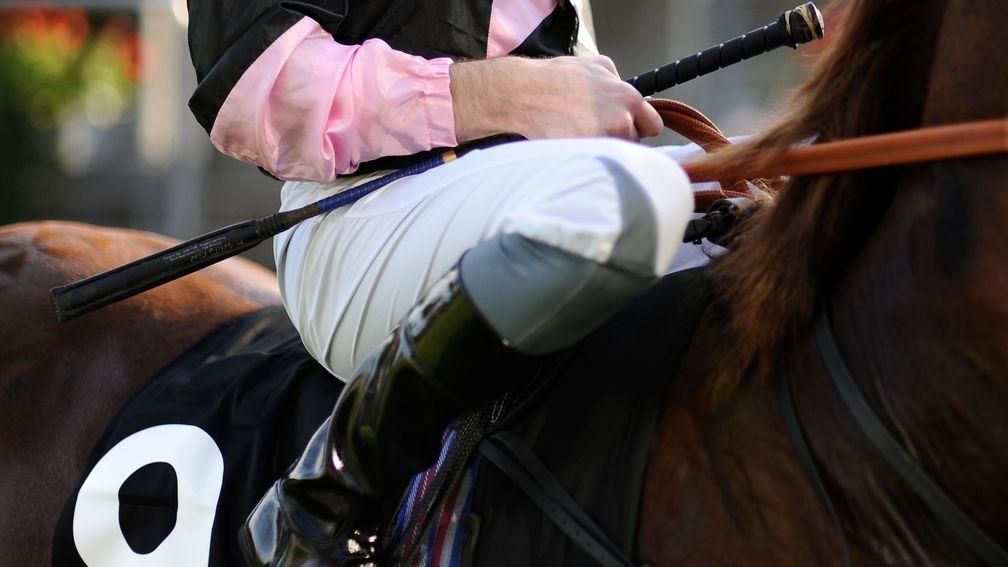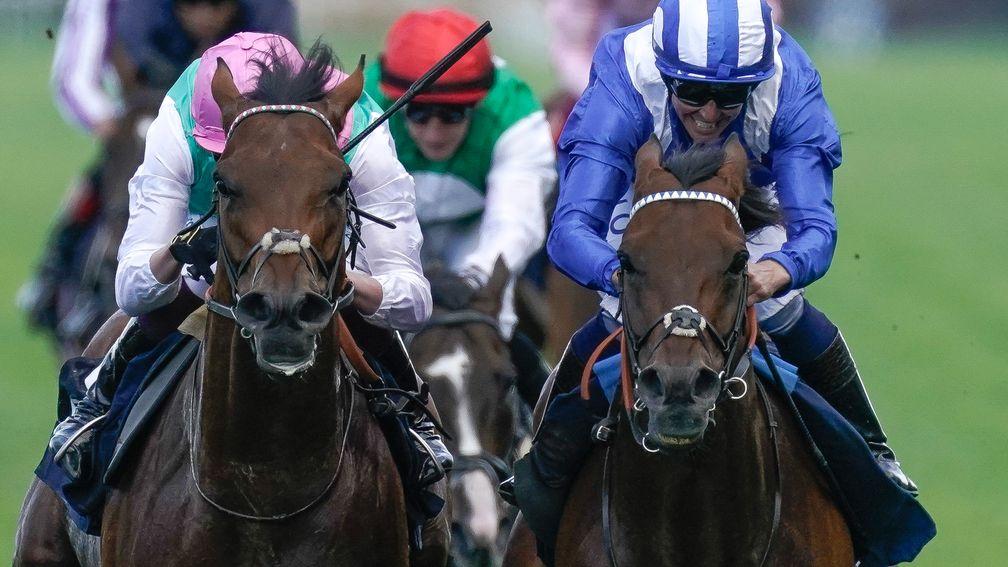Penalties for controversial new whip rules eased following review with senior riders

Whip penalties have been eased in the latest amendment to the rules following an assessment of the first six months of British racing’s controversial new regime.
While there have been no changes to the technical aspects of the rules, such as the maximum number of times the whip can be used in a race, sanctions have been amended after discussions between the BHA, Professional Jockeys Association (PJA) and senior riders.
The PJA said it was pleased the sanctions were "less onerous" on riders following the changes. Dale Gibson, the organisation's interim chief executive, said: “We will continue to work with the BHA to review all aspects of the rules and sanctions, with the plan to meet again in the autumn to discuss any further potential amendments. The process has been time consuming, however we believe the alterations to be a step in the right direction.”
Flat riders could have their punishment for using the whip one more time than the maximum allowed level of six strikes reduced by one day, to three days, if the rider has had 100 or more rides in Britain since their last breach of the whip rules. A two-day reduction could be permitted if the rider has had 200 or more rides in Britain without breaking the rules.
The same reductions would also apply to jump jockeys who had ridden 75 times without using the whip above the permitted level of seven times, or 150 days without breaching the rules.
The amendments to the rules come at a time when the debate has been reignited by the prospect of a significant ban for jockey Jim Crowley after he exceeded the maximum use of the whip during a pulsating finish to the King George VI and Queen Elizabeth Stakes, a race the jockey won on Hukum from the Rob Hornby-ridden Westover.

Under the new rules, penalties will only be doubled in Class 1 races and any Class 2 race worth £150,000 or more. It will also apply to any Class 2 race restricted to apprentice, conditional or amateur riders.
Additionally, riders will only be referred under the totting-up rule when punished for using the whip above the permitted level four times in a six-month period, up from three times. The maximum suspension under the totting-up rule has also been reduced to four months from six months.
A streamlining of the penalty process has also been brought in, with jockeys able to have their cases heard on the day by racecourse stewards when going one strike over the permitted level. They will have no right to appeal the sanction if taking this option.
The BHA also announced that a time limit of seven days will be imposed for retrospective reviews by the Whip Review Committee (WRC) into potential breaches of the rules, except in the case where there could be a potential disqualification.
Sam Angell, chair of the WRC, said: “These changes reflect an ongoing process to improve the new whip rules and penalties, while retaining the original objectives, which are to ensure more judicious use of the whip for encouragement, improve the perceptions of whip use and ensure the outcomes of races are fair.
"The BHA remains extremely grateful to the PJA and the senior riders who have engaged so constructively with this process. This dialogue will remain ongoing.
"We continue to see a reduction in the rate of offences, which is a testament to the measures being taken by the jockeys as they continue to adapt to the new rules, for which they deserve great credit.
Data published by the BHA on Monday showed 425 rides had been referred to the WRC during the first six months of the new whip rules, resulting in 360 breaches, or 0.96 per cent of rides during the period.

Using the whip above the permitted level accounted for 61 per cent of the suspensions, with less experienced riders receiving a higher proportion of the bans. Professional riders accounted for 77 per cent of the rides and 57 per cent of the penalties, whereas jockeys classed as apprentice, conditional and amateur received 43 per cent of the bans despite taking 23 per cent of the rides.
“We continue to see a reduction in the rate of offences, which is a testament to the measures being taken by jockeys as they continue to adapt to the new rules, for which they deserve great credit,” Angell added.
Whip rule changes - the timeline
In July last year the BHA announced major changes to whip rules in British racing, with the intention of promoting “more judicious use of the whip for encouragement” and improving the perception of the whip. The rules have undergone a number of changes since, with the latest announced on Monday. Below, we detail the alterations.
Amendment one: January 4, 2023
Concerns about the practicality of the proposed backhand-only use of the whip, raised by riders, prompt that rule to be scrapped. As a makeweight, the maximum number of strikes over jumps and on the Flat is reduced by one (to seven and six respectively) and penalties enhanced for breaches of the rules.
Amendment two: February 10, 2023
Amended guidance is provided to raceday stewards and the Whip Review Committee (WRC) on how to interpret the rule on the use of the whip over shoulder height after jockeys voice worries about the number of rides being referred. The doubling of penalties in Class 1 and 2 races is limited to use of the whip above the permitted number rather than also being for other breaches.
Amendment three: March 30, 2023
The totting-up process is amended so that jockeys are only referred to the WRC if they breached the rules on using the whip above the permitted level three times in a six-month period, or if they breached any combination of the rules five times over six months.
Amendment four: May 16, 2023
Penalties for a ‘double tap’ are reduced to one day of training (from a four-day ban) for unintentional administration. Should the jockey ‘double tap’ after the training, they receive a four-day ban unless the incident happened more than three months or 150 rides after training.
Penalties are amended for wealing, where use of the whip results in the horse’s skin being exposed. Penalties introduced for horses being wealed even if no whip offence had been committed, where previously a whip offence had to take place for a ban to be given.
Amendment five: July 31, 2023
A number of penalty changes made for use of the whip above the permitted number, including: reduction of up to 50 per cent for one strike over if riders have had 200 rides (Flat) and 150 rides (jumps) since their last breach; double penalties removed in Class 2 races below £150,000, unless restricted to amateur, apprentice or conditional riders; jockeys referred for totting up after four breaches in a six-month period with maximum ban reduced to four months from six; introduction of on-the-day hearings for one strike over rather than cases being referred to the WRC.
Read this next:

Subscribe to Racing Post Members' Club Ultimate Monthly and pay just £9.99 per month for your first two months!
Available to new subscribers purchasing Ultimate Monthly using code SUMMER. First two payments charged at £9.99, renews at full monthly price thereafter. To cancel please contact us at least seven days before subscription is due to renew. Offer expires 30/09/2023.
Published on inBritain
Last updated
- Confirmed runners and riders for the December Gold Cup at Cheltenham on Saturday
- Racing to go ahead at Bangor on Friday after track passes inspection
- Four eyecatching runners on Cheltenham's Friday card - including a festival fancy and a cross-country contender
- Sir Alex Ferguson and friends looking to win it with kids again as Il Ridoto bids for big double at Cheltenham
- Is this Britain's next big Gold Cup hope? Kim Bailey ready to shoot for the stars with Chianti Classico
- Confirmed runners and riders for the December Gold Cup at Cheltenham on Saturday
- Racing to go ahead at Bangor on Friday after track passes inspection
- Four eyecatching runners on Cheltenham's Friday card - including a festival fancy and a cross-country contender
- Sir Alex Ferguson and friends looking to win it with kids again as Il Ridoto bids for big double at Cheltenham
- Is this Britain's next big Gold Cup hope? Kim Bailey ready to shoot for the stars with Chianti Classico